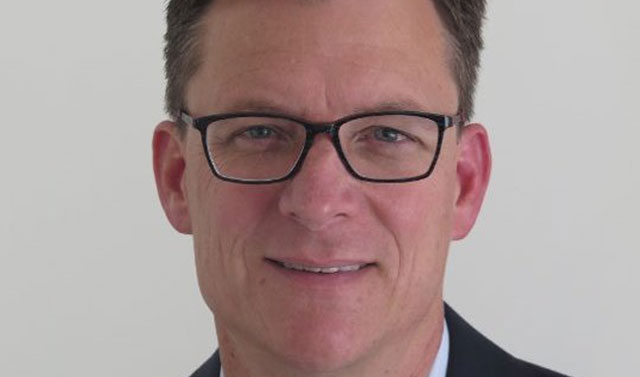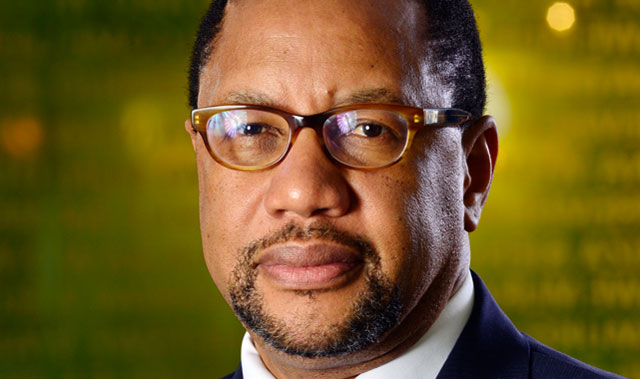
MTN Group’s new CEO, Rob Shuter, begins work on Monday morning, taking the reins from interim executive chairman Phuthuma Nhleko at a time of considerable operational challenges at Africa’s biggest telecommunications operator.
Shuter, until last year the CEO of the Europe cluster at Vodafone, has a series of challenges to deal with, not least the hangover from a record regulatory fine in Nigeria and difficult operating conditions and political headaches in key markets, including Nigeria and South Africa.
Despite spending the past four years in Europe, first as CEO of Vodafone’s operations in the Netherlands and later as head of Europe, Shuter is well-versed in the South African telecoms landscape: between 2009 and 2012, he served as chief financial officer at Vodacom.
Shuter inherits a group whose share price has fallen sharply in the past two years as investors dumped it, first over the Nigerian fine — US$1bn, reduced from an initial $5,2bn — and as concerns mounted about operating conditions in Nigeria, South Africa and other markets.
Earlier this month, the group reported a headline loss of 77c/share for the year ended 31 December 2016 as a perfect storm, headlined by the Nigeria fine, culminated in what management called the “most challenging” 12 months in its 22-year history.
But there are early signs of a turnaround, the group said.
MTN’s woes began in 2015, when Nigerian authorities slapped it with the world’s biggest regulatory fine in telecoms history for failing to disconnect 5m unregistered Sim cards. The fine quickly led to the departure of former CEO Sifiso Dabengwa and the return of (then nonexecutive) chairman Nhleko to the job he held between 2002 and 2011, albeit in an acting capacity.
Nhleko has made significant changes to the reporting structure and management of the group, bringing in fresh leadership, including a new chief financial officer (Ralph Mupita, formerly CEO of Old Mutual Emerging Markets), chief operating officer (Jens Schulte-Bockum, formerly CEO of Vodafone Germany) and vice-president of strategy and mergers & acquisitions Stephen van Coller (formerly head of Absa’s Corporate and Investment Bank). The South African operation also has a new CEO, effective Monday, in the form of former Vodacom executive Godfrey Motsa, who replaced Mteto Nyati, who resigned last week to take up the leadership reins at Altron from Robbie Venter.
Shuter certainly has a powerful team of people around him, which will serve him well as he tackles the political, regulatory and operational challenges awaiting him in his inbox.
He will also have to navigate the sea-change in the industry as it moves from a voice-driven world to one which is data led (here, his experience in developed markets will prove beneficial). MTN is in the early stages of building new “digital” businesses as it seeks to offset the decline in voice. It is also showing good promise in mobile money services (although not yet in South Africa).
But one of the first issues Shuter may have to deal with is the worsening policy environment in South Africa, where government’s ICT policy white paper threatens the company’s local operations.
Government wants to create a new infrastructure monopoly in South Africa in the form of a wholesale open-access network, giving the new entity exclusive access to all unassigned 4G/LTE (and, later, 5G) spectrum. Telecoms minister Siyabonga Cwele is refusing to entertain amendments to the policy, despite the potential threat it poses to investment. Resolving the issue in a way that is not detrimental to MTN will require political dexterity on Shuter’s part.

Shuter must also carefully manage growing popular anger against mobile operators, with many South Africans of the view that data prices are too high and that telecoms companies are profiting unduly at their expense. Though it hasn’t happened yet, MPs, ever ready to jump on a populist bandwagon, could seek to intervene more directly in the industry, particularly on pricing, which could affect the fortunes of MTN and others.
In Nigeria, Shuter must also navigate a hostile political environment. The regulatory fine appears to be behind the group, but that hasn’t stopped politicians from rattling their sabres and threatening further sanctions. Some of it may be little more than posturing against a successful South African firm; some of it could turn out to be altogether more serious down the line.
Indeed, Nhleko believes managing “stakeholders” must be a principal focus for Shuter. Speaking on TechCentral’s podcast last week, Nhleko said: “Clearly this sector, in this part of the world, has [a] very wide [array of] stakeholders, which are always requiring of engagement.”
However, he said there are still “significant opportunities” for MTN given that most of the markets in which it operates are still in the “development stage”.
“[Being in emerging markets] gives us an opportunity take what is good out of the more developed markets in terms of practices and process and so on, but it also means we need to have quite an entrepreneurial eye… What you can do in Uganda is not necessarily what you may want to do in France,” Nhleko said. — © 2017 NewsCentral Media




